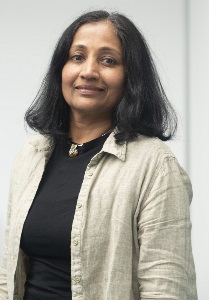Abstract:
Heart development is a complex process, starting from specification of cardiac precursors and formation of a linear tube to gradual progression to a functional beating organ. For normal heart development, many processes, including asymmetric positioning of the heart along the left-right(L/R)axis, cardiac growth, and cardiac valve morphogenesis must be completed successfully. Although heart development has been studied extensively, the mechanisms that control heart morphogenesis and valve formation are not fully understood. The pro-convertase FurinA is a key protein that functions in heart development in many vertebrates including zebrafish. How FurinA activity is regulated during heart development is not known. Through computational analysis of the zebrafish transcriptome, we identified a short sequence and structure RNA motif in a variant transcript of FurinA harbouring a long 3’untranslated region (3’UTR). The alternative 3’UTR furina isoform is expressed at embryonic stages preceding organ positioning. Reporter localization and RNA-binding assays show that the furina 3’UTR forms complexes with the conserved RNA-binding protein and translational repressor Ybx1. Conditional mutant zebrafish embryos affectingybx1show premature and increased Furin reporter protein expression, abnormal cardiac morphogenesis and heart looping defects. Mutant ybx1 hearts have an expanded atrioventricular canal, abnormal sino-atrial valves and mutant embryos show retrograde blood flow from the ventricle to the atrium. This is similar to human heart valve regurgitation patients. Our findings show that the 3’UTR element/Ybx1 regulon plays a key role in translational repression of FurinA, revealing a new upstream regulatory mechanism during embryonic heart development, and demonstrates the ybx1mutant as a model to study cardiac valve development and function.
| Venue:
Room 7C, Level 7, Duke-NUS |
| Zoom Details: |
| Join Zoom Meeting
https://nus-sg.zoom.us/j/84420977475?pwd=aVMvRHVZMyt3c2FNN29WeUZsdjVXQT09 Meeting ID: 844 2097 7475
Passcode: 831928 |
| Host:
Prof Wang Hongyan
Deputy Programme Director & Principal Investigator
Neuroscience & Behavioural Disorders Programme
Duke-NUS
Contact Person:
Joyceline Ng (joyceline.ng@duke-nus.edu.sg) |
All are welcome. No registration is required.
Date and Time
18 Apr 2023 @ 15:00 - 18 Apr 2023 @ 16:00
Speaker

Professor Karuna Sampath
Director, Warwick-A*STAR Singapore PhD Programme
Centre for Mechanochemical Cell Biology & Division of Biomedical Sciences,
Warwick Medical School, University of Warwick, UK
Karuna Sampath is a Professor of Biomedicine, University of Warwick. Following her doctoral training at Indiana State University, USA, she obtained post-doctoral training at Vanderbilt University, Nashville, USA and at the Institute of Molecular Agrobiology, Singapore. She started her independent programme in 2000 at the Institute of Molecular Agrobiology, Singapore. She was a group leader at Temasek Life Sciences Laboratory, National University of Singapore from 2002-2013. In 2014, the Sampath lab re-located to the University of Warwick in the UK. The Sampath Laboratory focuses on fundamental mechanisms that control early embryonic development and differentiation of progenitors using the animal model of human development and disease, zebrafish, and cultured human cells as experimental systems.